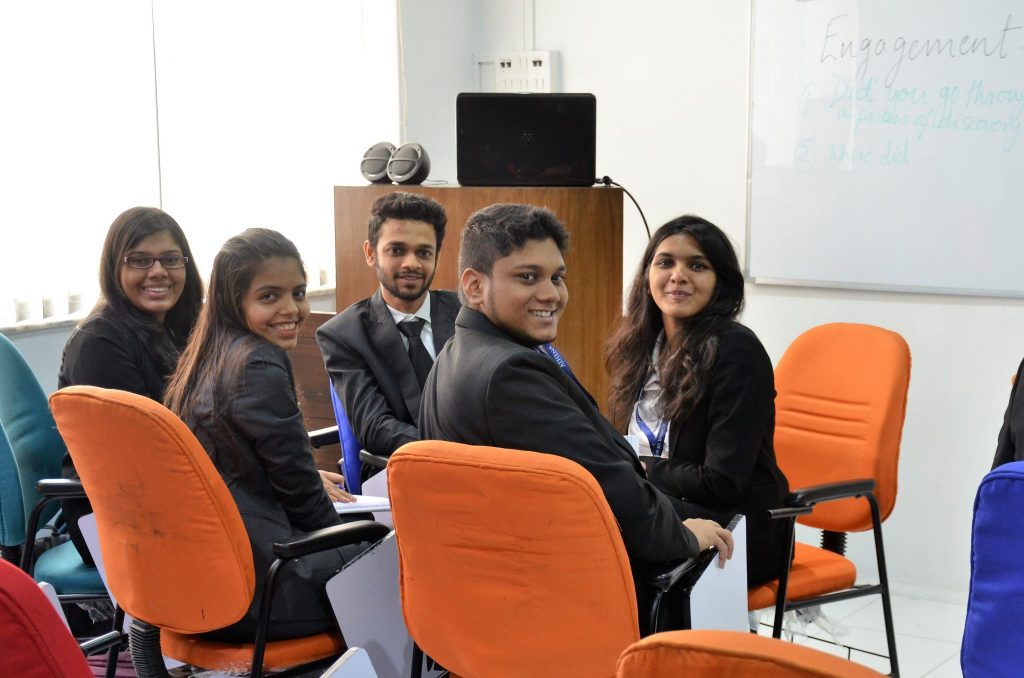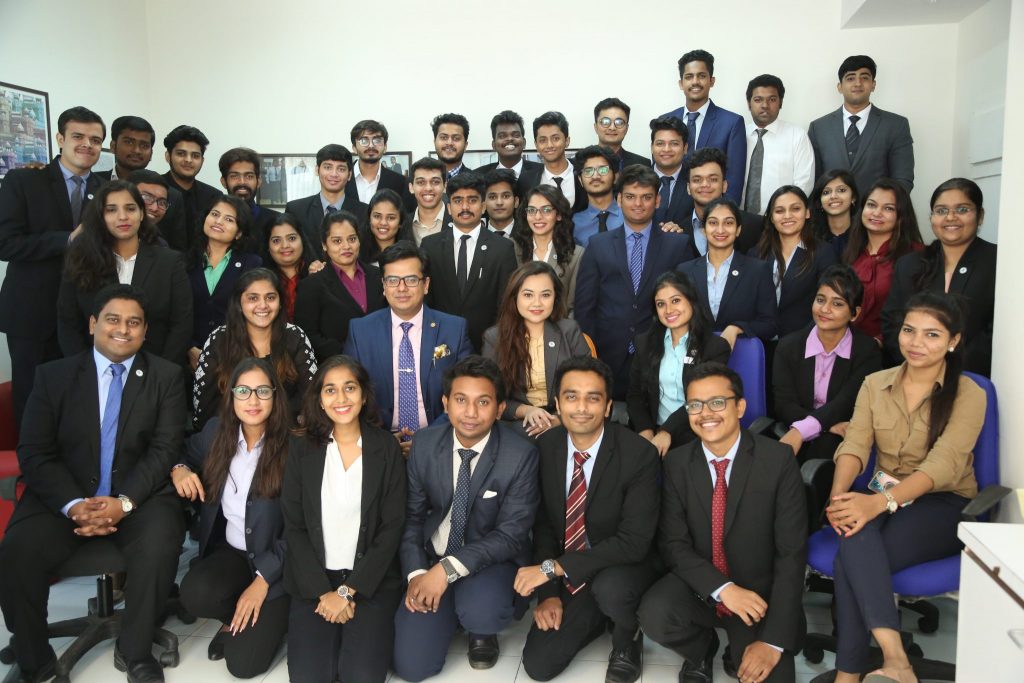Business Schools must adopt alternative business models and embrace technology, or risk becoming a casualty of the paradigmatic changes in business, argues Professor Bodo Schlegelmilch in a call for action
When AMBA accredits an MBA programme, it does so for a maximum of five years, because in five years, a lot can change. A Business School has to apply for re-accreditation and demonstrate that the content of its programme(s), its teaching methods and quality standards remain current and up to date.
When Business Schools award degrees, they do this for life – but is there a genuinely good reason for doing so?
What MBAs learned five, 10 or 15 years ago is certainly not current, often irrelevant and sometimes even wrong. Business Schools need to change their business model. For example, in sync with the sharing economy, future Business Schools could move from ownership to renting. Under this, Schools would not award their MBA degrees forever (the ownership model), but would grant the degree for a limited number of years (subscription model).
Unless MBA graduates demonstrated a commitment to continuous professional development, their degrees would expire.
However, degrees for rent are not the only potential change in store for Business Schools. There are a number of developments that suggest the end of ‘business as usual’.
I want to focus on four change catalysts:
- New paradigms of success
- The growing influence of Asia
- An unprecedented speed of technological development
- An increasing demand for sustainability.
New paradigms of success
Traditional Business Schools rely on their full-time professors for teaching. These professors spend most of their time on research and are often also tasked with administrative duties. According to Kai Peters, Richard Smith and Howard Thomas’ 2018 book Rethinking the Business Models of Business Schools, depending on the particular type of university, the seniority of the professor and the country, the time such professors spend in class is no more than 120-300 hours per year.
This model makes teaching expensive. In 2011, Howard Thomas and I wrote a paper for the Journal of Management Development entitled ‘The MBA in 2020: Will there still be one?’ and reported that, for all but the top 13,000 institutions that offer business degrees worldwide, this teaching model is probably unsustainable. With some MBA and executive MBA (EMBA) fees now well in excess of €100,000, this also raises serious questions of social equity and fairness.
Most Business Schools are therefore looking for ways to reduce teaching costs, and various options exist. Most Schools employ clinical or practice-based faculty (essentially lecturers free of research obligations) to bring down costs. Blended learning or flipped classrooms can further boost the bottom line, if less-costly tutors can replace expensive full time faculty. In such models, students work through a variety of tasks and teaching materials outside the class and only return to the Business School campus for a substantially reduced number of face-to-face teaching hours.
While these cost reductions seek efficiencies within the existing Business School model, they fail to question the rationale of the model itself. This is akin to Blockbuster Video looking for cost savings when Netflix changed the rules of the game. We all know what happened to Blockbuster: it went bust.
The real competition for many Business Schools comes from drastically different business models. First, there are the so-called massive open online courses (MOOCs) aimed at open access via the internet. These courses bring a new competitive dynamic to Business Schools. Some large, financially well-off universities produce their own MOOCS, while the majority scramble to partner with a heterogeneous group of providers.
Other eLearning platforms work independent of traditional Business Schools. MOOCs have shifted the competition from being between Business Schools to between networks. These networks include a range of companies that team up to design and distribute educational content.
To add another level of complexity to the competitive landscape, international consulting companies are expanding their digital learning offerings. While these companies do not (yet) have the right to grant degrees and typically offer a certificate on completion of their courses, it is ultimately arguable whether a certificate from a prestigious consulting company such as McKinsey or PwC or a degree from a relatively unknown university has more currency. In addition, some MBAs offered by traditional Business Schools are already giving credits for a variety of MOOC certificates.
Finally, corporate universities and system integrators are encroaching on the traditional Business School market. Some corporations, such as Sberbank Corporate University in Russia, have built large and highly impressive campuses, where they not only train their own employees but also those of selected partner companies.
Sberbank Corporate University has teamed up with INSEAD and London Business School (strong brands obviously still count) and makes use of learning material from Khan Academy. Sberbank and other non-conventional Business Schools use a fly-in faculty model, which saves them having expensive full-time professors on their books. Students at such institutions may well be taught by excellent professors with up-to-date research records; but other Business Schools pay for the research time of these professors.
Thus, traditional Business Schools face a myriad of competitive challenges. There are new, mostly technology-driven market entries; increasing competition from outside the industry by consultants, publishers and IT companies; increasingly competitive corporate universities, and there are Business Schools that are system integrators with minimal overheads and no research expenditures.
All of this suggests that the time for ‘business as usual’ is over. A few cosmetic changes to the existing business model will not be enough to secure survival. In particular, Business Schools that are not among the top aspirational brands will need to adopt alternative business models or risk becoming a casualty of the paradigmatic changes in the business environment.
Growing influence of Asia
A brief look at the history of Business Schools, and the development of MBAs in particular, helps us to appreciate the startling emergence of Asian MBA programmes in recent years.
Business Schools were initially founded in Europe, but quickly became a hallmark of the US. According to a 2004 article in Accounting History by academics Lúcia Lima Rodrigues, Delfina Gomes, and Russell Craig, Aula do Comércio (School of Commerce) in Lisbon, Portugal, is believed to be the world’s first government-sponsored School to specialise in the teaching of commerce, including accounting. It was established in 1759 and closed in 1844.
Meanwhile, ESCP Paris, founded in 1819 in France, regards itself as the world’s oldest fully fledged Business School. More than 60 years later, in 1881, the Wharton School of the University of Pennsylvania was established in the US (according to its website as ‘the world’s first collegiate school of business’).
Next, in 1900, the Tuck School of Business at Dartmouth College was established as the first graduate school of management in the US. Tuck is noteworthy because it conferred the first advanced degree in business – a master of commercial science. This is widely regarded as the predecessor of the MBA.
In 1908, the first MBA programme was established by the Harvard Graduate School of Business Administration, and in 1943, the first EMBA was established at the University of Chicago, Booth School of Business. At this time, only US universities offered MBAs and it took until 1948 for MBAs to become popular at Business Schools elsewhere.
The first MBA programme outside the US was offered by the Ivey School of Business, University of Western Ontario, Canada. One year later, this was followed by the University of Pretoria in South Africa. In 1957, INSEAD in France became the first European Business School to offer an MBA. During the following decade, a burst of new Business Schools and MBA programmes took place, including the founding of renowned institutions in the UK such as London Business School (in 1964) and Manchester Business School and (in 1965). Unfortunately, the market was also entered by some less-sound competitors. To provide quality guidance to potential Business School students, AMBA was founded in 1967.
The first MBA degree in Asia can be traced back to 1955. The Institute of Business Administration at the University of Karachi, Pakistan, offered the MBA with technical support from Wharton and, later the University of Southern California. In 1963, Korea University established the Graduate School of Business Administration and recruited the first MBA students. In China, the MBA has a short history: the first nine MBA programmes were launched in 1991; today, there are more than 230 MBA programmes in the country.
Despite the late adoption of MBAs in Asia, the 2018 Financial Times full-time global MBA ranking included 15 Asian MBAs in the top 100; seven of them from China. In its 2018 EMBA Ranking, 28 Asian EMBAs are among the top 100, all of the top eight involving Business Schools from China.
A decade ago, the Financial Times ranked only four Asian MBAs among the top 100 in its full-time global MBA ranking, and only nine in its EMBA ranking. Sceptical readers who point to the widely criticised reliance on financial criteria in the Financial Times rankings may, instead, look to accreditation: AMBA now accredits more than 50 Business Schools with MBA programmes in Asia, 35 in China alone. This provides further evidence of the importance of Asia’s Business Schools gained in just over two decades.
The phenomenal rise of MBA programmes in Asia reflects the region’s transformation into a hive of global business. As Pavida Pananond, Associate Professor of Thammasat University in Bangkok, aptly commented in February 2018, in an article in the Bankok Post: ‘If you are sitting in London or Boston, you might not really feel the action as much as if you were sitting in Shanghai, to see how business is growing in China. So one of the first advantages of these Asian Schools is that you are located where the action is.’
In 2017, China surpassed the UK and Germany for the first time in terms of the number of citations of international science papers (according to China Daily in 2017). In summary, the evidence suggests the dominance of US and European Business Schools is reducing and the emergence of top Asian Business Schools as formidable competitors has become yet another indicator of the end of business as usual.
Speed of technological change
The impact of MOOCs on traditional Business Schools only scratches the surface of a vast range of developments that will revolutionise the way students learn and Business Schools teach in the future.
Already, students want to learn where, when and how best fits their individual needs; for example, watching a video while on board a plane at 5am in the morning. They also want learning to be a stimulating and enjoyable experience. Commuting to a Business School located in a city, finding a parking space, and listening to a traditional lecture hardly fits this picture.
Just imagine the potential of using Microsoft’s HoloLens for teaching. Students could learn about consumer behaviour in emerging markets by immersing themselves in a souk in Marrakesh or a bazaar in Kolkata. On an operations management course, students could embark on a virtual tour through the shop floor of a robotics manufacturer. The technology could be used to make them feel that they were really there, without ever leaving their living room.
The technology (such as Microsoft HoloLens) already exists and the applications are only limited by our imagination.
Meanwhile, augmented reality holographic technology is also set to change our teaching approach. Instead of flying expensive faculty around the world, they could be beamed into a classroom via holographic telepresence and give lectures or deliver entire courses in different continents.
During AMBA’s 2018 Global Conference in Stockholm, Sweden, a live two-way discussion took place between the audience and the digital human hologram of the CEO of ARHT Media, Larry O’Reilly, who was thousands of miles away in Toronto, Canada. Delegates had the impression that O’Reilly was actually in Stockholm. The entire discussion could be stored for playback on-demand. In fact, according to ARHT Media, the hologram can also be ‘captured, transmitted and displayed directly to multiple stages simultaneously with complete live two-way interactivity’. This challenges the age-old wisdom that one cannot be in two places at the same time.
While these technological advances are impressive, they are not the only ones. Other innovations, such as adaptive learning and artificial intelligence (AI), are already emerging. Collectively, these rapid technological changes indicate the end of ‘business as usual’. Traditional Business Schools will not be able to survive without embracing fundamental changes in technology.
Demand for sustainability
The increasing demand for sustainability will have a profound influence on Business Schools. But what does demand for sustainability mean and where does it come from?
At a rudimentary level, according to the UN, sustainability refers to our concern that human activities should meet the needs of the present without compromising the ability of future generations to meet their own needs. At a more detailed level, sustainability calls for the balancing of three fundamental dimensions: environmental protection, societal progress and economic growth. While Business School teaching has traditionally focused on economic growth – the profit part of the three sustainability dimensions – the other two dimensions, often labelled as ‘people and planet’, are increasingly gaining centre stage.
However, most case discussions and lectures do not even question the primacy of profit as an outcome variable of corporate value creation. Typically, Business School teaching centres around how various elements of the value chain can be optimised to increase profits. Students debate how employees can become more profit-orientated. They research how the supply chain can be optimised to increase profits. Professors teach how customer touch points should be designed to increase profits. And classes debate the most profitable pricing strategy.
Even when corporate social responsibility (CSR) or sustainability issues are addressed, they are usually also cast into a model that focuses on profit outcomes. For example, we may investigate how our CSR measures impact on profits. Likewise, we debate whether support of local causes is more profitable than support of international causes; and we examine whether supporting a children’s charity has a higher profit impact than supporting a local art gallery.
Non-financial outcomes
While these and similar questions are undoubtedly important for both teaching and research in Business Schools, it is the virtually exclusive focus on profit as outcome that is the problem. What about non-financial outcomes, such as customer safety, reduction of waste or health of employees? What about organisations that have other purposes, such as social enterprises or ‘B-corporations’ which balance purpose and profit?
In a paper I wrote with Magdalena Öberseder and Patrick Murphy in 2013 for the Journal of Business Research entitled ‘CSR Practices and Consumer Perceptions’, we concluded that MBA students – in their roles as consumers, employees, employers and entrepreneurs – are increasingly concerned about a multitude of sustainability issues, such as food quality, their own biological footprint and working conditions. Legislators also focus increasingly on issues such as environmental degradation or recycling. And corporations themselves are not only reacting to shifting consumer demands and legal requirements, but explore sustainability issues such as recycling and energy conservation.
Business Schools cannot ignore these value changes. Instead, the increasing demand for sustainability needs to translate into a widening curriculum for Business Schools, in which much more debate on the purpose of the enterprise will have to take place.
Current faculty is ill-equipped to tackle such fundamental debates. Typically, faculty has a strong grounding in particular subject areas, such as finance, operations or statistics. This is necessary but not sufficient. Faculty needs to adopt more holistic viewpoints. Perhaps Business Schools of the future, in whatever shape or form they may still exist, will employ philosophers to lead discussions on the purpose of business.
The futures of Business Schools
Are the developments discussed above hailing the end of Business Schools and, hence, the end of MBAs? It depends which future trajectory a Business School will choose.
If a Business School opts to continue with business as usual, it will soon encounter a substantial drop in its MBA enrolment. A knee-jerk boost in advertising spend, increase in scholarships, and reduction in teaching costs by bringing less-qualified instructors into MBA classrooms, will be insufficient.
Such measures are unlikely to stop the downward spiral of fewer qualified students, lower income and a restricted ability to make necessary investments.
Instead, Business Schools need to go beyond cosmetic adjustments and consider fundamental changes to their business models. This starts with a realistic assessment of their resources and capabilities. Few Schools have massive endowments, strong brands or the unquestioning support of taxpayers, enabling them to run a costly, campus-centric system.
These Schools will be able to continue attracting MBA students into classrooms where they can interact with expensive faculty. While we are living in a hyper-connected world, this is often accompanied by social isolation. To this end, personal networking with influential peers and alumni will continue to play a key role at these Schools. And having an MBA from XYZ (please insert a top-brand Business School of your choice) is as much a rite of passage en route to a desirable corporate career as it is an opportunity to acquire knowledge and skills.
Less fortunate Business Schools – the majority – will have to think carefully about their resources, capabilities and, in particular, purpose. Before they settle on a business model, Schools need to gain clarity on a host of soul-searching questions: what constitutes success, both for the Business Schools and for the MBA programme? (See box, left).
Of course, any Business School dean will easily be able to add another few dozen pertinent questions. Coming up with truthful answers that guide future strategies is more challenging.
Many deans appear to be in a state of denial, hoping that the Business School world, and with it the MBA programmes, will somehow be unaffected by the paradigmatic changes occurring in our environment. And if fundamental changes are required, the hope is that they can be tackled by the next dean.
The uncomfortable truth is that this may already be too late for many MBA programmes and, indeed, many Business Schools.
This article, therefore, is a call to action. Its objective is to encourage Business Schools to embrace the environmental turbulences we are experiencing. Not every change is a threat. Changes can also open up opportunities, but taking advantage of changes requires the courage to chart new routes. And these routes may be very different for Business Schools with varying resources, capabilities and purposes.
Not all Business Schools will be able to serve their students in comfortable campuses with full-time faculty who spend the majority of their time on research. Some will use blended systems, both in terms of mixing teaching by practitioners and traditional academics, and in terms of programme delivery, using online and offline modes of instructions. Some will try to work with a modicum of their own faculty and become systems integrators. Some may not offer traditional degrees any longer but certify short, focused interventions, which keep managers abreast of new developments.
There may be Business Schools that work on a subscription basis, offering MBA graduates the opportunity for continuous professional development as they advance and make changes throughout their career paths. And even after the active career of a manager comes to an end, a Business School may reach out to older learners and offer them attractive reasons to keep engaged with the School.
A one-time intervention which finishes with the award of an MBA degree would give way to a lifelong relationship which starts with an MBA degree. Of course, this brings us back to the beginning of the article: degrees for rent.
Arguably, MBA degrees with expiry dates that require proof of continuous professional development to keep the degree valid do have some merit.
Professor Bodo Schlegelmilch is Chair of AMBA & BGA’s Board. He was the Founding Dean of WU Executive Academy at Vienna University of Economics and Business from 2004 until 2015 and remains Professor of International Management and Marketing at the School.
























